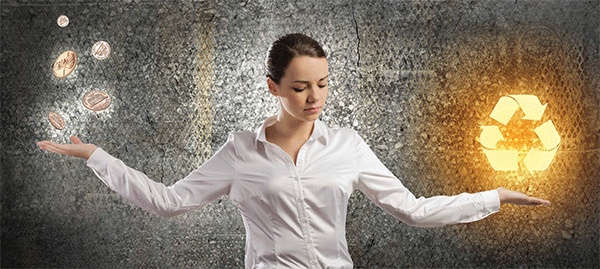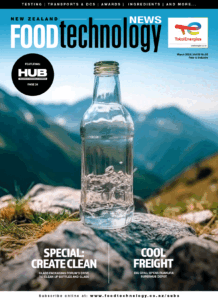 Effective recycling is more complicated than many realise – that’s why University of Auckland’s associate professor Johan Verbeek wants to make it easier and cheaper with innovative technology.
Effective recycling is more complicated than many realise – that’s why University of Auckland’s associate professor Johan Verbeek wants to make it easier and cheaper with innovative technology.
Creating this new technology is the first step in a plan University of Auckland researchers have, to reduce New Zealand’s rate of generating plastic waste.
Researchers including Professor Simon Bickerton, Associate Professor Deb Polson, Head of the Design school at the University of Auckland, Dr Julia Fehrer from the Faculty of Business and Economics, and industry organisations are exploring what it will take to simplify the recycling system and create an economically viable circular economy for recycled plastics.
Associate professor Johan Verbeek, director of the Plastics Centre of Excellence at the University of Auckland says one of the major issues standing in the way of this is that recycled material is not that much cheaper than virgin material.
“There’s so little motivation [for businesses]because in the end everything boils down to economics. If you can offer some alternatives that can be better than something else, then people have a better incentive to actually use it.
“If you go out into the industry, there is the ability to reprocess the materials we have but there are quite a few technological restraints and a whole heap of economical ones.”
He says the plastic problem in New Zealand is ‘hugely complicated’ and split between single use packaging and other plastics.
“The overall premise [for the research]is, can we change human behaviour in a way that would stimulate the increased recycling of plastic?
“From the engineering side of it, we want create technology where we can upcycle these materials. [Currently] we often take these recycled materials and make something of lesser value. I don’t want to dismiss those ideas but if you look closely at the economic barriers you realise that actually unless you offer value addition to these things, it’s difficult to get any of these ideas off the ground.”
He also says the way many businesses think about a circular economy, is flawed.
“Our entire linear approach, from making something, sending it to a consumer and then discarding it, needs to change. If they have a product, they need to be thinking about what the end of life plan is and how it ties in with the entire life cycle of that product.”
In terms of the practicalities behind this, researchers are experimenting with technology that allows two different plastics to mix.
“When you make a plastic bucket, [this technology would allow]the material that it’s made from to be mixed between two or three different plastics,”says Verbeek.
“It’s almost like oil and water. You have to have the technology to make it physically mix, like a mayonnaise which is a mixture of many things but is actually one product. That’s where our technology comes in. There are methods of doing that energy efficiently and economically.”
However, truly efficient recycling starts at the collection point he says.
“There are so many different ways to recycle. There are the different drop off zones where you can leave materials in different bins and that’s quite a good option if you’re trying to extract very high value plastic but that relies on people buying into a scheme like that.”
This sort of scheme could be either at an individual level or organised through community groups such as schools as a way of extracting specific types of material to make higher value products.
“Every time we come up with something new it has to compete with what we have now. If you make a product out of a material X it has to outperform [the existing product]and be cheaper.
“Long term, business models might actually force companies to rethink that, because there might be new penalties that come in that change the economy as well. That’s more or less what you have to operate with. Whatever new technology comes out; it has to compete with the very low cost of plastic.”
Verbeek says that attitudes have changed a great deal over the last five years.
“There’s been so much media attention around the plastic pollution problem that there is definitely some more societal pressure on companies to have decent behaviour. Industry also has its eyes on changing regulations, and they want to be ahead of the game. They don’t want to react to what government regulations – they want to be ready so that when they have to do it they’re in a better position.”


































































































